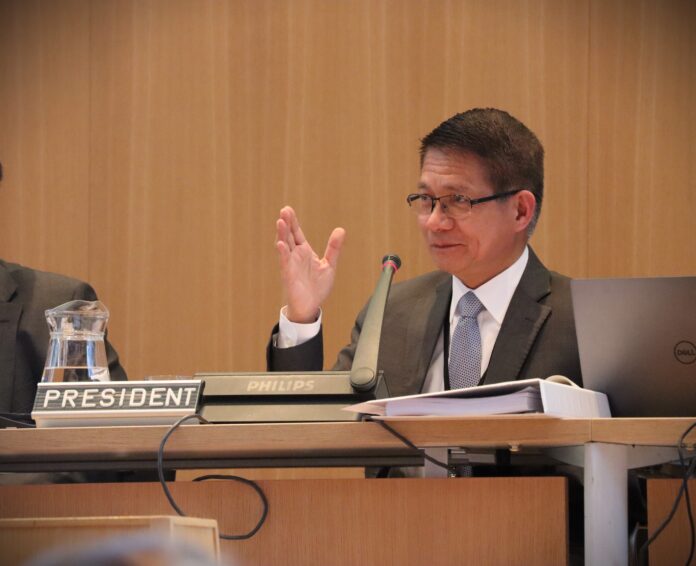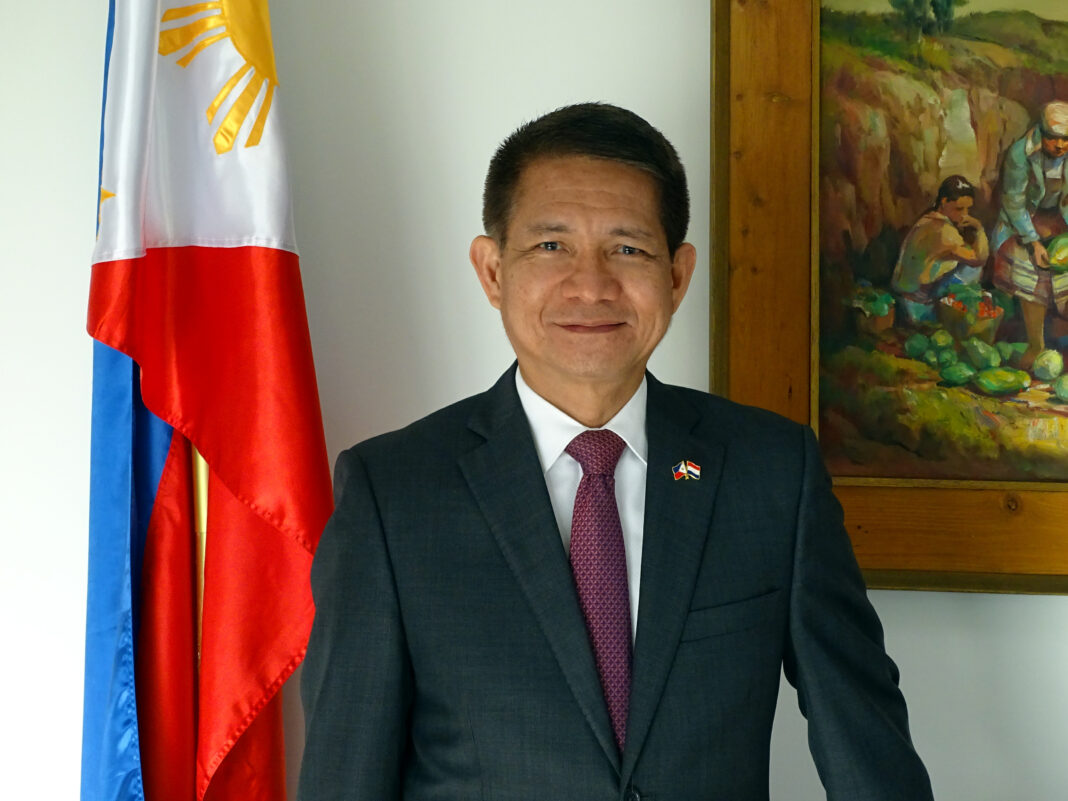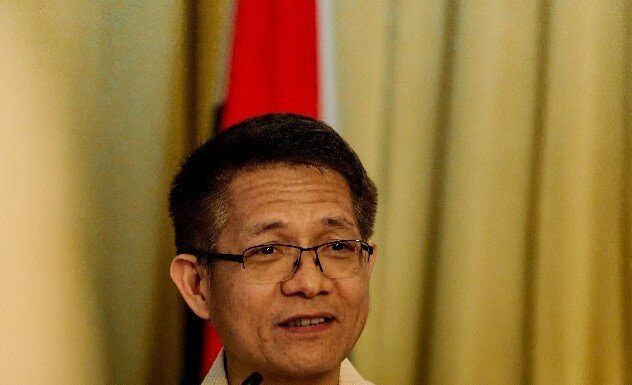Its Contributions to International Law and Diplomacy
By H.E. Mr. J. Eduardo Malaya
Eminent international law personalities from 122 countries will converge on June 12 at the Peace Palace in The Hague for a rare Congress of the Members of the Court of the Permanent Court of Arbitration (PCA). This gathering of individuals representing the Contracting Parties to the 1899 and 1907 Conventions for the Pacific Settlement of International Disputes will assess the past and current workings of the organization and chart out its future. The significance of the Congress, which has the theme “Court fit for its Time: Continuing the Evolution of the Permanent Court of Arbitration towards the fulfilment of its Promise,” is underpinned by its being only the third time in the organization’s 125-year history that such a meeting will take place.
The prominence of The Hague as City of Peace and Justice – or as referred to by UN Secretary General Boutrous Boutrous-Ghali, the “legal capital of the world” – derives from having the Peace Palace, a seven-hectare compound with a beautiful Neo-Renaissance building which hosts three of the world’s most cherished international law institutions – the PCA, the International Court of Justice (ICJ), and the century-old Hague Academy of International Law.
The PCA’s contributions to the peaceful settlement of disputes and the development of international law are fairly well known. Since its establishment in 1899, the PCA has institutionalized the practice of arbitration and other forms of dispute resolution between states, and made them more accessible. The awards and decisions rendered by its various tribunals and commissions, including the landmark 1928 case Island of Las Palmas, has significantly enriched international law.
Origins of Multilateralism
Less known but equally significant is the PCA’s contributions to diplomacy as we know it today. The first International Peace Conference held in The Hague in 1899 that gave birth to the PCA also planted the seeds that later germinated into the League of Nations and the Permanent Court of International Justice and their successors, the UN and its judicial organ, the ICJ.
As Prof Harold Hongju Koh noted at a forum in June 2023, the 1899 Hague Conference was innovative in many ways. “It was the first official peace conference that did not occur in the aftermath of a major war. It was the beginning of the modern form of international conference like the League of Nations and the United Nations. Second, it was the first major conference that represented a wide range of the world’s nation states, from the West, the East and the Americas, each given a single equal vote. So, whereas not exclusively limited to Western powers, it was not just a great power exercise, it was a global gathering, a precursor to today’s General Assembly…”
The conference established the PCA, a pioneer of the modern forms of international dispute resolution, and saw the birth of modern multilateralism, the organizing principle of the UN and similar bodies.
A Court fit for the times
In operations for the last 125 years, the PCA has developed into a modern, multi-faceted arbitral institution perfectly situated to meet the evolving dispute resolution needs of the international community. It has a three-part organizational structure consisting of an Administrative Council composed of representatives of its 122 Contracting Parties that oversees its policies and budgets, a panel of independent potential arbitrators known as the Members of the Court, and the Secretariat, known as the International Bureau, headed by the Secretary-General.
After prolonged periods of inactivity, the PCA had a revival in the late eighties and has since evolved into a modern international dispute settlement institution with one of the heaviest caseloads of all international courts, supporting in 2023 alone a record 218 registry cases and handling 50 requests relating to its appointing authority functions.
The PCA has also assisted the UN in peacemaking and resolving conflicts through its mechanisms, such as the Eritrea/Yemen dispute and the Abyei Arbitration. With its services forming a fundamental aspect of the rule of law, the PCA has helped promote the UN’s three pillars of peace and security, human rights and development, and assist in achieving the 2030 Agenda and the Sustainable Development Goals.
With the ICJ focused on judicial settlement of disputes, PCA offers enquiry, mediation, conciliation and arbitration, thus together they cover all the means for the peaceful settlement of disputes recommended in Article 33 of the UN Charter. In view of this, U.N. Secretary General Kofi Annan in 2004 described the PCA and ICJ as “complementary institutions offering the international community a comprehensive range of options for the pacific settlement of international disputes.”

Governance reforms
The PCA’s procedural rules have been updated and modernized, and its areas of competence expanded into new areas of dispute resolution, notably the adoption of procedural rules for arbitration and conciliation of disputes regarding natural resources and the environment, and the outer space. Its role has been enhanced in administering arbitration under Annex VII of the UN Convention on the Law of the Sea, serving as registry for almost all of the UNCLOS arbitrations conducted pursuant to said Annex, and the only compulsory conciliation conducted pursuant to Annex V.
To make its services more accessible in different regions of the world, the PCA now has offices in Buenos Aires, Hanoi, Mauritius, Singapore and Vienna.
Reforms have improved its organizational governance, with the conduct in 2021 of the first-ever competitive election for the position of Secretary General, currently held by Dr. Marcin Czepelak, the first non-Dutch in said office. The position of acting President of the Administration Council was created in 2019, and it is now rotated among the regional groups every two years.
Towards a meaningful 125th anniversary
It has been a distinct honor for me to have been elected in late 2022 as Acting President of the Administrative Council for term 2023-2024. To highlight the contributions of the PCA to international peace and security, I initiated and worked with Secretary General Czepelac and colleagues at the Philippine Mission to the UN in New York and a Core Group of link-minded missions on the adoption of a UN General Assembly resolution for the anniversary.
The UN reinforced its bonds with the PCA when on August 1, 2023, the General Assembly adopted Resolution A/RES/77/322 welcoming the anniversary and commending the PCA for its significant contributions to world peace and justice. “Recognizing the important contribution of the PCA to the peaceful settlement of disputes,” the General Assembly “encourages Member States to make use of the PCA’s services, consistent with international law, in arbitration, conciliation, mediation, commission of inquiry, and other peaceful means of dispute resolution and to support (its) activities…”
The UNGA resolution is significant for at least three reasons. It was adopted by consensus, with 120 co-sponsors, which is a remarkable majority at a time when the assembly is often polarized. It is only the second resolution ever from the UNGA on the PCA, the first one in 1993 when the latter was invited to participate in its proceedings as an observer. The call for accession is also timely as only 122 of the 193 UN Member States are PCA Contracting Parties, and thus 71 are yet to be part of it.
To lend a festive air to the upcoming anniversary and upon the invitation of the Embassy of the Philippines, the University of the Philippines Concert Chorus (UPCC) will visit The Hague and perform at the Diligentia Theater on June 6, a few days before the Congress. The country’s premier and multi-awarded university-based choir, the UPCC has gained acclaim in bridging musical genres such as classical, folk, pop and Broadway with their signature “choreocapella” (choreographed a capella singing) and will highlight songs of peace, among others.
In an era where international peace and security are facing serious challenges, the PCA’s services take on even greater significance. To the surprise of perhaps its founders 125 years ago, the PCA has endured, adapted and thrived, akin to a wise person who regained youthful strides.
About the author:
Mr. Jose Eduardo Malaya, is the Acting President of the PCA Administrative Council for term 2023-2024, a Member of the Court of the PCA, and the Ambassador of the Philippines to the Kingdom of the Netherlands.




